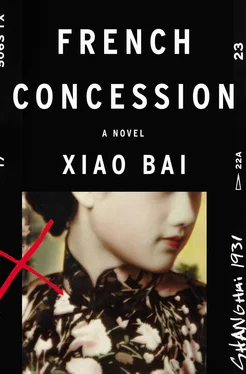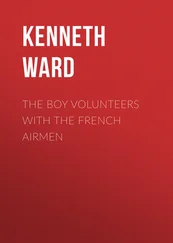One night, the Municipal Police sent a large police squad to storm a meeting of Korean revolutionaries on Avenue Dubail. Park’s brother pulled out his gun, attempting to resist arrest, and was killed on the spot. It was rumored that the police had been tipped off, and some suspected the Korean Communists in Vladivostok, but Ku warned Park against believing the hearsay. The British police in the International Settlement were known to be crafty, and the rumors might be a smoke screen. In any case, Park’s cell suffered great losses, and if Ku had not accepted him into his own cell, he would have had nowhere to go.
The car made a U-turn and headed east, toward the brick villas and the wooden-gated longtangs of the French Concession. As Park gave the driver directions, he kept glancing in the rearview mirror. At the restaurant, he thought he had seen a dark shadow flit past outside. He was suspicious. At any rate, he did not want to be careless. His training had taught him how to follow someone.
The car turned onto Rue Amiral Bayle, and stopped at the entrance to the longtang. The corner store opposite it was still open, and two men stood inside: the shopkeeper, busy with sums on an abacus, and his errand boy, who stood shirtless by the counter, wearing a piece of black cloth tied around his waist, even though it was only June. Bundles of wooden clips, a row of metal spoons, assorted metal frames, and bits of wire hung above them.
As soon as the car stopped, Park got out and melted into the shadows of the alley. Lin took his guest into the unlit longtang, turning left into the horizontal alley, and going into a house. Hiding behind the house across the alley, Park heard two sets of footsteps on the stairs. He knew those stairs were narrow, steep, and pitch-black. Then he heard rapping at a door, more footsteps, and the sound of furniture being dragged across the floor.
He emerged ten minutes later and slipped into the house. The apartment was directly above the street. He pushed open the double doors at the entrance to the stairs. Leng sat on a stool, keeping watch, and staring at a kettle about to boil on a little gas stove. She looked up at him, and down into her own thoughts.
He went into the room. Their guest was sitting at the table near the window. Ku sat across from him in long gray traditional dress, an oak hat on the desk. Lin stood behind their guest. Lifting a corner of the curtain to look down onto the street, Park took a seat at the table, facing the window directly.
The cell was getting bigger, and Park noticed that Ku’s recruitment methods were not always upfront, but that did not trouble him. He trusted Ku. Like Park, Ku had been trained in Khabarovsk, but he was far more experienced than Park himself.
Ku was a natural leader and careful planner. His cell was divided into several smaller units that operated in isolation and only collaborated occasionally. The master plan was written nowhere but in Ku’s brain.
Firearms would be crucial. In Ku’s plan for revolution, firepower was everything. Money bought guns, and they had money. After the Kin Lee Yuen operation, they had done a few more assassinations to put the group’s finances on firmer ground.
At a camp on the outskirts of Khabarovsk, Park had learned the techniques of persuasion, how to give your counterpart the illusion that he was winning you over rather than vice versa, how to frighten a man, how to tempt him, how to make him follow you, help you, put his life in your hands — with words alone.
Their guest passed a piece of paper to Ku and looked at him as if he expected Ku to leap up and seize it. Instead, Ku took it from him calmly.
“Our inventory is all in Hong Kong. We can have the goods shipped to Shanghai by a Blue Chimney Co. passenger liner. As usual, the delivery of goods will have to take place at the pier.”
“Sure,” Ku said.
“Payment on delivery. That’s what we agreed on in Hong Kong.”
“Sure.”
“Five thousand seven hundred and eighty yuan, in silver.”
“No problem.”
The tea had now been served. The room grew quiet. Tea leaves swirled in their cups. Their guest knew what he was doing, he knew the rules, and would say no more than was necessary. Park was reassured to see that Mr. Zung did not stand on ceremony and had not brought a bodyguard. He would not need one. The most dangerous moment was the delivery of goods, but that could be arranged without their even having to meet. Of course, payment would have to take place in person, but the very fact that they were meeting here signified that many important people in the complicated black market in firearms had vouched for both parties.
Park’s own favorite rifle was the “box cannon” rifle, the Mauser C96 with 7.63 mm chambering, of which Ku was ordering a new high-velocity model from their guest. In a shootout, firing off all twenty rounds at once always had a powerful effect. The gangs also liked the Mauser. It was said that a defeated northern warlord who was lying low in Shanghai once engaged high-ranking members of the Green Gang for protection, and that his personal bodyguards were tricked out of their Mauser rifles as a result. The gangsters had demanded that they turn over their guns, claiming that unlicensed firearms were prohibited in the Concession, and when the men eventually got their guns back, the rifles had been swapped for rusty old pistols.
Lin drew the curtains, closed the door, and left the room. He stood in the hallway and chatted with Leng. But the voices within fell silent before long, so Lin opened the door and went down the stairs.
Their guest was about to leave. He reminded Ku that once they had received and paid for the goods, the two parties would be strangers to each other. Irxmayer & Co.’s policy was to ask no questions about how customers used their goods. Hunt wild ducks, murder unfaithful spouses, or hang your guns on the wall — just forget you got them from Irxmayer & Co., especially if things go wrong.
“Mr. Zung, please rest assured, we’ll do more business in the future. Your company is selling us a bunch of goods, and we now represent a significant chunk of your business. You might as well have our entire ledger. We know you have to cut off a finger with gangrene right away — you can’t afford to do this deal if there is any chance it could go sour.”
Honesty can be the best policy. Their guest looked pleased. Lin had already ordered a car for him from the hardware store opposite them, and this time it was Lin who took him back to their meeting point.
Park waited until long after the car had taken off before he turned and left. Instead of going upstairs, he patrolled the dark streets for a while. When they were first escorting their guest into the car, he had noticed a shadow in a longtang about fifty meters away. It was the second time he had seen that checkered shirt today, and this time he clearly saw it flapping in the wind beneath a dim streetlamp suspended from the arched beam of the longtang. By the time he hurried over, the long alleyway was empty. He knew it led out to another road. It was possible that he had imagined the shadow, but he doubted it. Rue Amiral Bayle was the safe house for Lin’s unit and an important meeting point for the cell. In a little while, he would go back and report this to Ku, but not yet. Waiting on the street corner, he figured that Ku would soon notice that Leng was distracted, and her mind was wandering. Ku would speak to her the next time he had a chance. The leader of a secret organization must pay close attention to the mental focus of its members; the greatest threat to the cell’s security was distraction. He grew slightly worried for Ku. Leng herself seemed unaware that something was troubling her.
JUNE 8, YEAR 20 OF THE REPUBLIC.
Читать дальше












